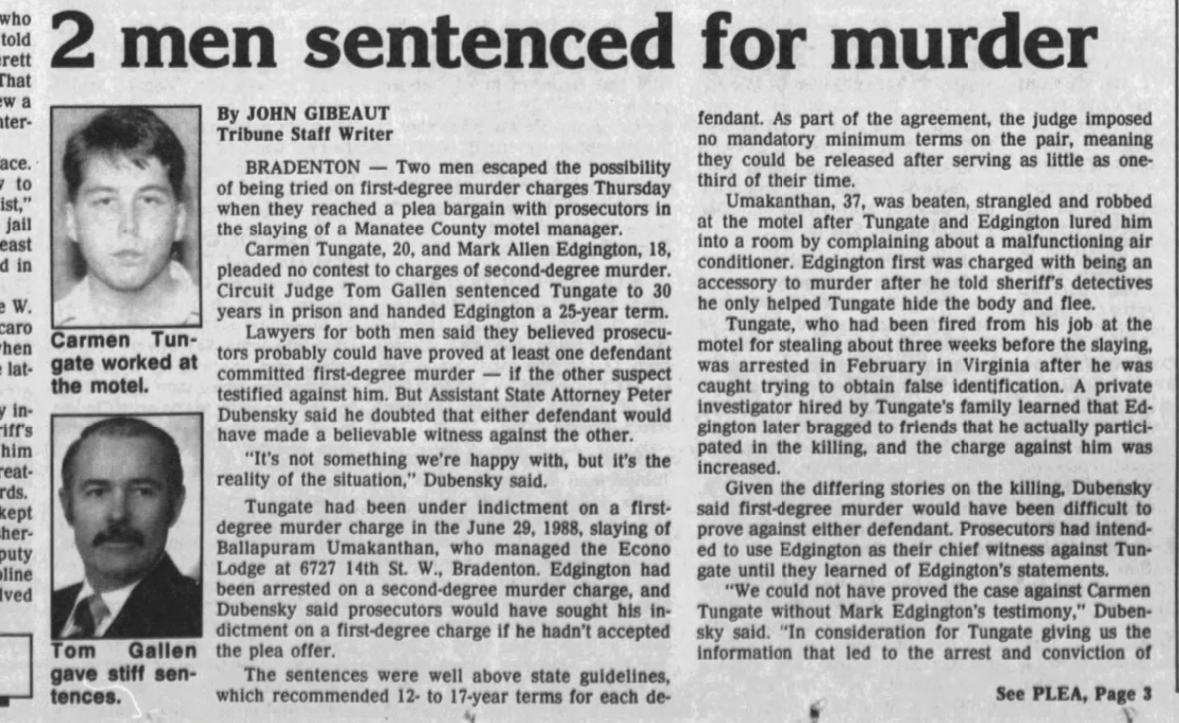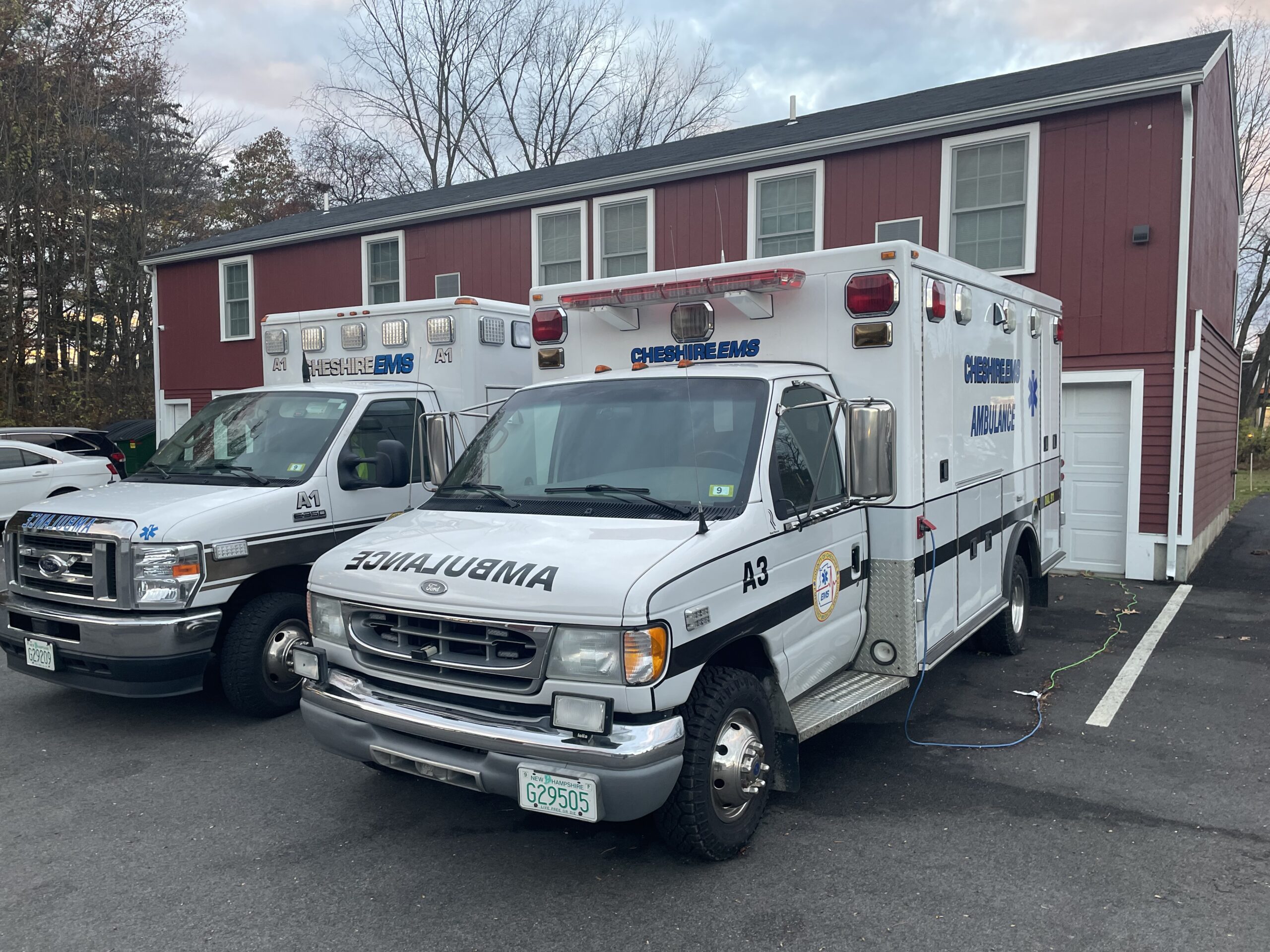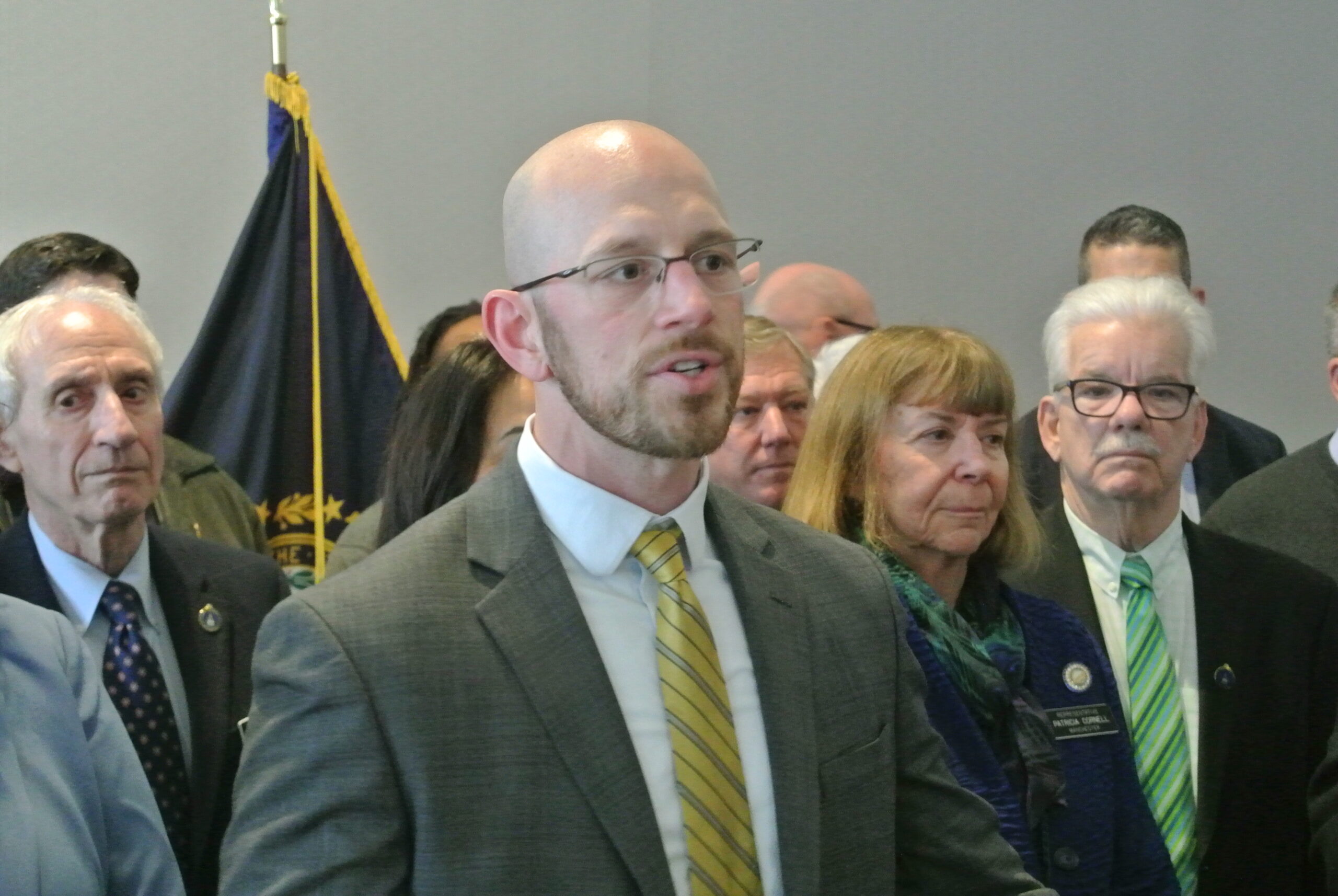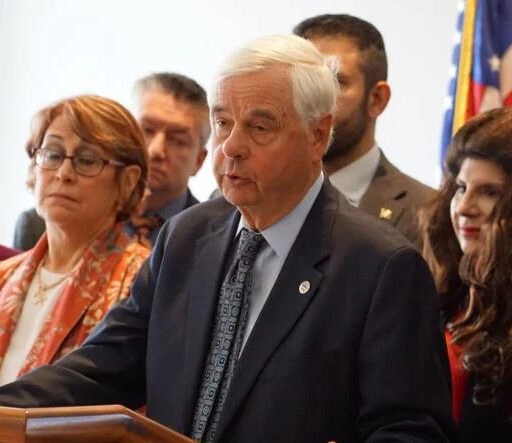NH House Candidate Hopes Voters Can Look Past His Murder Conviction

Republican candidate Mark Edgington is a successful entrepreneur, a volunteer firefighter, and a philanthropic volunteer who helped build an orphanage in Africa.
He’s also a convicted murderer who helped beat and strangle a motel manager to death during a 1989 robbery in Florida.
“35 years ago, at 17, I made some bad choices to hang out with the wrong people. The results were catastrophic. It taught me a lot and I am grateful for the lessons, all of the lessons, that have made me the man I am today,” Edgington told NHJournal via email.
Edgington, one of the original Free State Project pioneers, is now running for a seat in the state House of Representatives as a Republican to represent the towns of Hudson and Litchfield.

According to an affidavit given by Edgington that was filed in court and contemporaneous press accounts, Edgington was 17 and his accomplice, Carmen Tungate, was 18 when they killed Ballapuran Umakanthan, 37, in a Bradenton, Fla. Econo Lodge.
Umakanthan had recently fired Tungate for stealing from the business, according to the reports. Tungate and Edgington rented a room at the Econo Lodge and allegedly lured Umakanthan into the room with a complaint about a broken air conditioner.
Umakanthan entered the room, and Tungate hit him in the head with a pipe, according to Edgington’s affidavit. Umakanthan fought back but was soon overpowered. Tungate held Umakanthan down while Edgington strangled him until he saw blood coming out of the man’s ears, according to his affidavit.
Once Umakanthan was dead, Edgington allegedly helped wrap him in a sheet. He and Tungate then fled.
Tungate flew to Virginia after Edgington gave him a ride to the airport, according to the reports. Edgington stayed in Florida and was arrested the day after the murder while attending summer school classes.
Tungate evaded the law for a year and even got featured on “America’s Most Wanted.” He was arrested in Virginia when he tried to get a fraudulent birth certificate using the name of a child who had just died.
Tungate and Edgington pleaded no contest to second-degree murder and were sentenced to 30 years in prison. Tungate ended up serving 10 years, and Edgington eight, thanks to a controversial early release program that has since been rescinded.
As a free man, Tungate would go on to accumulate a criminal record for exposing himself to teen boys. He was shot and killed in 2009 in Florida in what is still an unsolved murder.
Once free, Edgington got interested in the radio business and in the late 1990s he met fellow broadcasting student Ian Bernard at community college. The pair also shared Libertarian political beliefs. The two would move to New Hampshire where Bernard, who changed his name to Ian Freeman, as part of the Free State Project.
Edgington and Freeman started Free Talk Live, Freeman’s successful Libertarian talk radio show. The two were early adopters of BitCoin and saw their investment pay off. According to a New York Magazine article, the pair drifted apart as Freeman became more involved in cryptocurrency activism. Edgington also became somewhat disillusioned with the Free State Project movement.
“Ian and I have completely different goals on what we want to do with our cryptocurrency,” Edgington told New York Magazine. “I want to create a place that’s actually free, rather than a bunch of recalcitrant, autistic people running around arguing with each other. People have been in New Hampshire for 20 years, and not much has occurred.”
Freeman is now serving a nine year federal prison sentence for wire fraud and money laundering related to his many BitCoin exchanges.
Edgington retired from Free Talk Live and said he’s no longer involved in the operations, though he does guest host from time to time. Edgington says he is ready to contribute to his adopted state as a Republican.
“Now I am ready to deepen my commitment to my state and Republican values by serving in the State House. As a firefighter and party volunteer, I have been passionate about serving my community for a long time. I want to protect parents’ rights to raise their kids how they see best, reduce taxes, and defend the Second Amendment,” Edgington said.
New Hampshire does not bar people convicted of felonies from serving in the legislature, so long as they have served their full sentence, including any probation and paying court-ordered fines.







